The Kora Shrine Circus is back in town, bringing with it the national controversy over the treatment of elephants and other performance animals that led to the demise of Ringling Bros. and Barnum & Bailey Circus.
The 64th annual Kora Shrine Circus, which raises money for the Lewiston-based fraternal organization, wrapped up three days at the Cross Insurance Arena in Portland on Wednesday before heading to the Augusta Civic Center for several shows Friday and Saturday.
Animal rights protesters have been present at this year’s shows, which fall amid the final days of the famed Ringling Bros. circus. The 146-year-old touring company, which will hold its last show May 21 in Uniondale, New York, blamed its closure on rising operating costs and declining attendance, especially after public pressure forced it to eliminate elephant acts last year.
Dan Gove, chairman of the Kora Shrine Circus, said he sees no end in sight for the springtime tradition in Maine, even as the Legislature debates a bill that would prohibit the use of elephants as entertainment in Maine.
“Because our animals aren’t mistreated,” Gove said. “It’s unfortunate that that’s the angle that gets sensationalized each year. We’re glad we’re still able to put on fine family entertainment.”
Gove, a Kora Shrine member who has worked on the circus for 30 years, described the show as a “first-class act” that has been produced by Hamid Circus Inc. of Egg Harbor Township, New Jersey, for the past 10 years.
Gove said the company emphasizes the safety of performers and animals, including elephants, lions and tigers. He has witnessed a “natural affection” between animals and handlers, he said, and he noticed that the animals are trained to respond to voice commands rather than whips or other training tools.
“I pay attention to the animal care because I’ve done this for so many years,” Gove said. “The animals are very well cared for. If I observed anything inappropriate, I’d go right to the trainers. They are sometimes better taken care of than children.”
Not everyone would agree with Gove’s assessment of how the elephants are treated.

Jessica Yandell of South Portland was one of about 10 people who protested using animals for entertainment.
About 10 protesters stood Wednesday evening outside the Cross Insurance Arena. They held signs with pictures of tigers and elephants on them and handed out fliers that said “Circuses are mean to animals, wild animals belong in the wild not in tiny cages or in performance rings in front of screaming crowds.”
PROTESTERS: CIRCUSES ABUSE ANIMALS
Melissa Gates, founding director of Animal Rights Maine, organized the protest. She held a sign with the message “Elephants have families too” – a reference to the fact that elephants in the wild are herd animals that live in groups.
Gates said the crowd’s reaction to protesters was mixed. Many parents shunned the protesters, but children seemed interested in reading the flier, she said.
A 2015 Gallup poll found that 69 percent of Americans were either very or somewhat concerned about the treatment of circus animals.
Gates said her organization urges the public not to buy tickets to a circus performance that uses animals in its acts.
Gates accused the Kora Shrine Circus of abusing elephants by forcing them to perform tricks that are potentially painful, such as standing on their hind legs. This year’s show features Asian elephants Lisa, 33, and Traci, 37, said trainer Armando Loyal. While Asian elephants can live to be 60 years old in the wild, those in captivity have shorter lifespans, according to the National Geographic website.
“There’s no question that circuses constitute animal abuse, and there is no place for animal abuse in Maine,” Gates said in a message posted on her organization’s Facebook page.
“All we are trying to do is convince the Kora Shrine Circus to discontinue its animal acts,” Gates said Wednesday.
Supporters of L.D. 396, an Act to Prohibit the Importation of Elephants to Maine, also disagree with Gove’s characterization of how the elephants are treated.
“It’s just not natural,” said Rep. Kim Monaghan, D-Cape Elizabeth, the bill’s sponsor. “I think we live in a somewhat different world today, where forcing wild, exotic animals to do tricks is no longer considered good old-fashioned entertainment, even by children.”
Monaghan said that even when circus elephants are treated relatively well, they are often chained, kept in cages, transported in box cars and not allowed to roam free in their natural habitat. And while some circus animals may eventually respond to voice commands, trainers initially must use techniques that promote fear so elephants will stand on their hind legs and do other tricks, she said.
Monaghan sponsored the bill on behalf of the The Humane Society of the United States – Maine. The amended bill would restrict people from importing or possessing an elephant in Maine unless it would be kept in a protective environment where it could behave as naturally as possible. Elephants would be banned from any public show, ride, parade, race or other event intended for the entertainment or benefit of an audience.
The amended bill would delay the impact of the ban on groups such as the Kora Shrine for more than two years. A traveling circus with elephants could operate legally in Maine through Jan. 1, 2020, if it’s raising money for a charity.
FAMILY FEELS SORRY FOR ELEPHANTS
Kristen Cobb and Joshua Stone of Westbrook brought their three children, ages 10, 3 and 1, to see the circus Wednesday afternoon, a tradition that Cobb says her family has had for years.

Kristen Cobb of Westbrook talks about the elephants.
Although Cobb said she would still bring her family to the circus even if it decided to no longer feature elephants, she said this year’s performance was different and it touched her in a way that it never had before.
“The elephants looked miserable,” Cobb said. “I think they looked very sad. They’d probably be a lot happier if they were in the wild.”
She said the elephants’ handler gave rides to circus-goers – a new feature of this year’s circus – before the show and during intermission. The elephants seemed uncomfortable, carrying five or six children as well as one or two adults at a time, she said.
Cobb said she would support a ban on animal acts “for the sake of the elephants.”
“I never really thought about it until I saw them giving rides to people,” she said.
“They looked wicked sad,” said Lily Stone, Cobb’s 10-year-old stepdaughter. “I think the elephants are cool, but they looked really sad.”
“They had sad eyes,” Joshua Stone said. “It’s a sad thing, but at the end of the day, when you think about it, the elephants aren’t necessary. You could put on a great show without them.”
Bruce Arseneault of Yarmouth brought his two grandsons to the circus Wednesday. His oldest grandson, who is 8 years old, paid $10 to ride the elephant. “He told me it was his favorite part of the show,” Arseneault said.
He said he doesn’t see anything wrong with having animal acts in the circus – Wednesday’s show featured elephants, lions, tigers and dogs – provided the animals are well cared for, and he saw no evidence that the animals in the Kora Shrine Circus were being abused.
Arseneault said it’s important for the younger generation to see these great creatures of the wild, especially if they are to be protected from poachers. “It could become a detriment to these animals if they are kept out of sight and out of mind,” he said.
The Kora Shrine Circus is held each April to coincide with school vacation week. Volunteers present 17 shows in seven days, including five shows last Friday and Saturday at the Androscoggin Bank Colisee in Lewiston. The Anah Shriners will present their circus Friday, Saturday and Sunday at the Cross Insurance Center in Bangor.
The circus is a major fundraiser for the Kora Shriners, who use the money to maintain the Kora Shrine Center, a historic, Moorish-style building on Sabattus Street in Lewiston. Kora members also hold fundraisers to support 22 Shriners children’s hospitals for burn victims and orthopedic care.
Gove wouldn’t say how much the circus raises. It varies from show to show and year to year, depending on the weather, he said.
The Anah Shrine tried to generate opposition to the bill in the Legislature and support for its circus with a Facebook post Feb. 23.
“Shrine Circus supporters, we need your help,” the post stated. “This bill, if passed, will stop all elephant acts (from) coming to Maine for the circus. It is a fact that the audience is substantially larger at our circus when the elephants come to perform. It is also our experience that circus-goers enjoy seeing the large animal acts. Stopping the elephants from coming to Maine will only harm the Shriners in Maine that depend on the circus to raise money to operate their philanthropy. As this loss trickles down, it could affect funding for the Shriners hospitals that treat children for FREE.”
ON FACEBOOK, SOME OPPOSING VIEWS
On the Kora Shrine Circus Facebook page, animal rights activists from around the country have posted pleas to exclude animals from the shows, calling circuses “a dying breed.”
“Love the cause (of) the Shriners and their purpose, but it’s time for (a) change on using animals in this world,” wrote Cathy Tardiff Stairs, who works in western Maine. “There could be other things added to the show.”
“I urge you to please exclude animals from your shows.” Briana Terwilliger wrote. “Circuses with animals are a dying breed. Circuses across the country are retiring or phasing out their animal acts. Entire countries are even banning this. People are waking up and realizing how cruel this is. Animals are not entertainment. These are wild animals who belong in their natural habitat.”
Meanwhile, Trish Allen of Buxton defended the use of animals in the circus and praised the Kora Shriners for raising money for children’s hospitals.
“Thank you for what you do!” she wrote.
Kelley Bouchard can be contacted at:
kbouchard@pressherald.com
Dennis Hoey can be contacted at 791-6365 or at:
dhoey@pressherald.com
__________________
CORRECTION: This story was updated at 2:10 p.m. on April 20, 2017, to correct the reference to the group backing a bill to ban elephants from use as entertainment. The group is The Humane Society of the United States – Maine.
Send questions/comments to the editors.



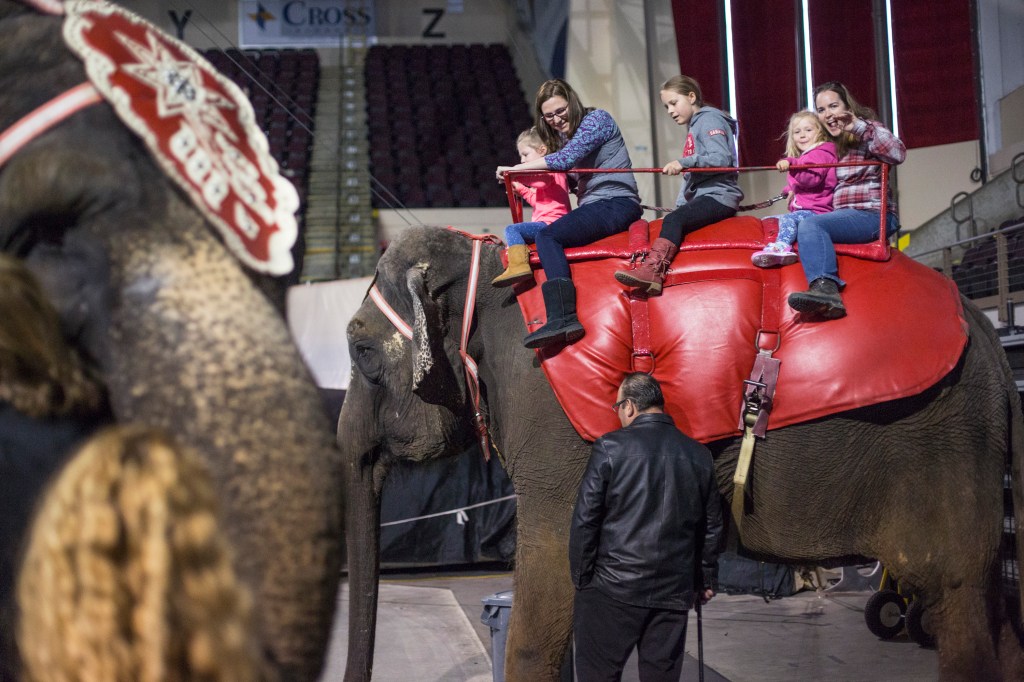
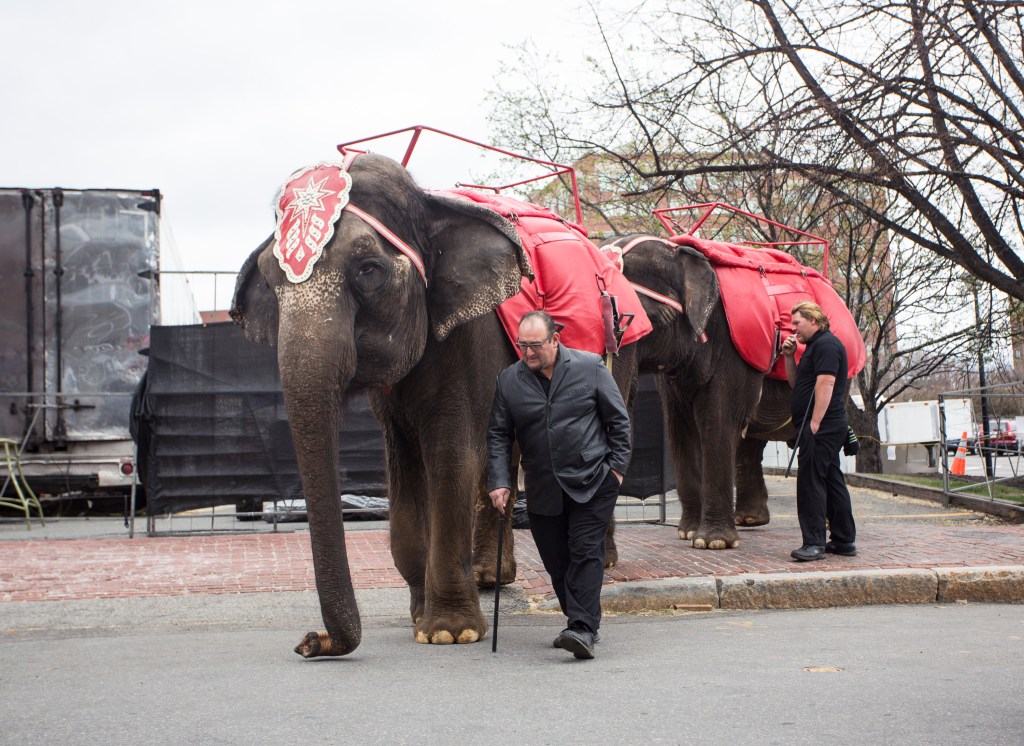

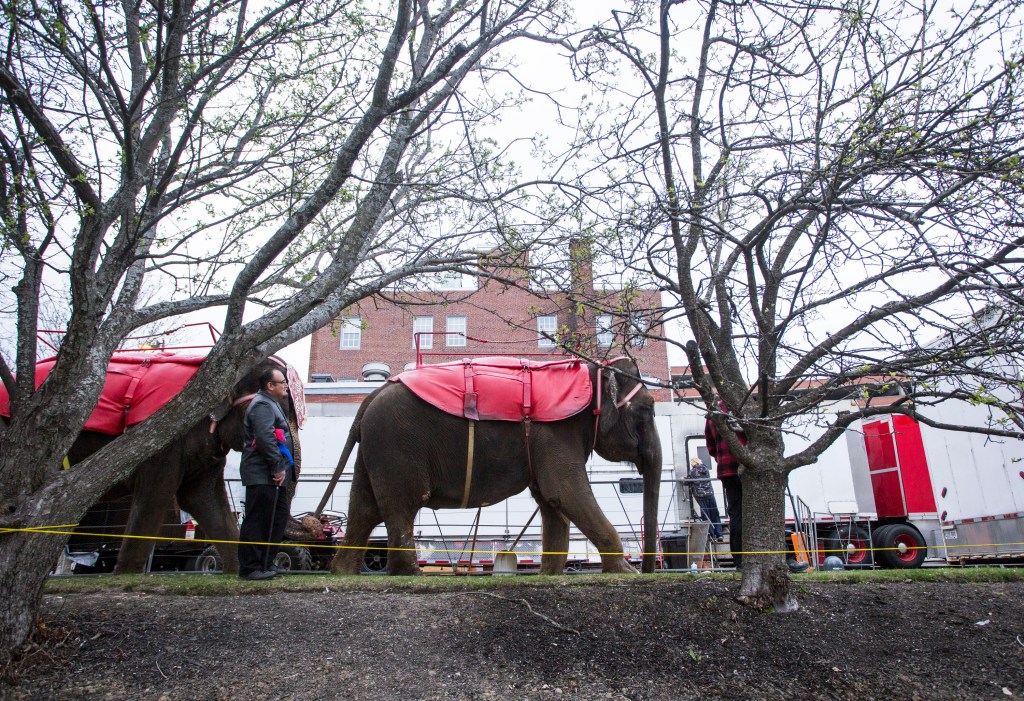
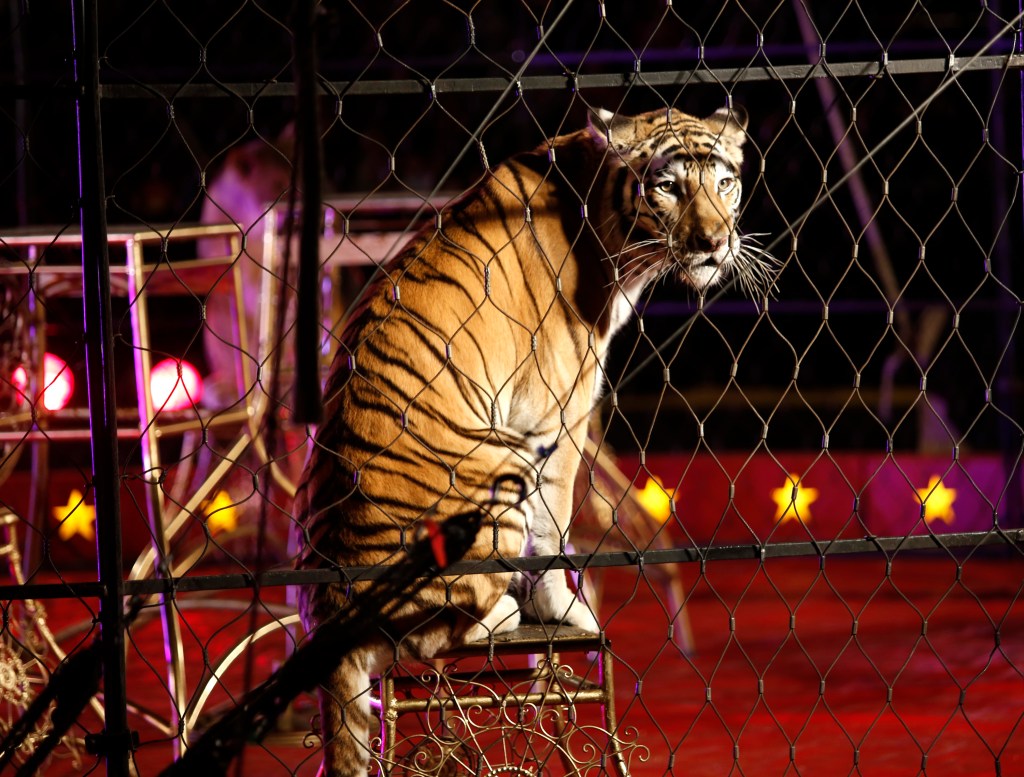
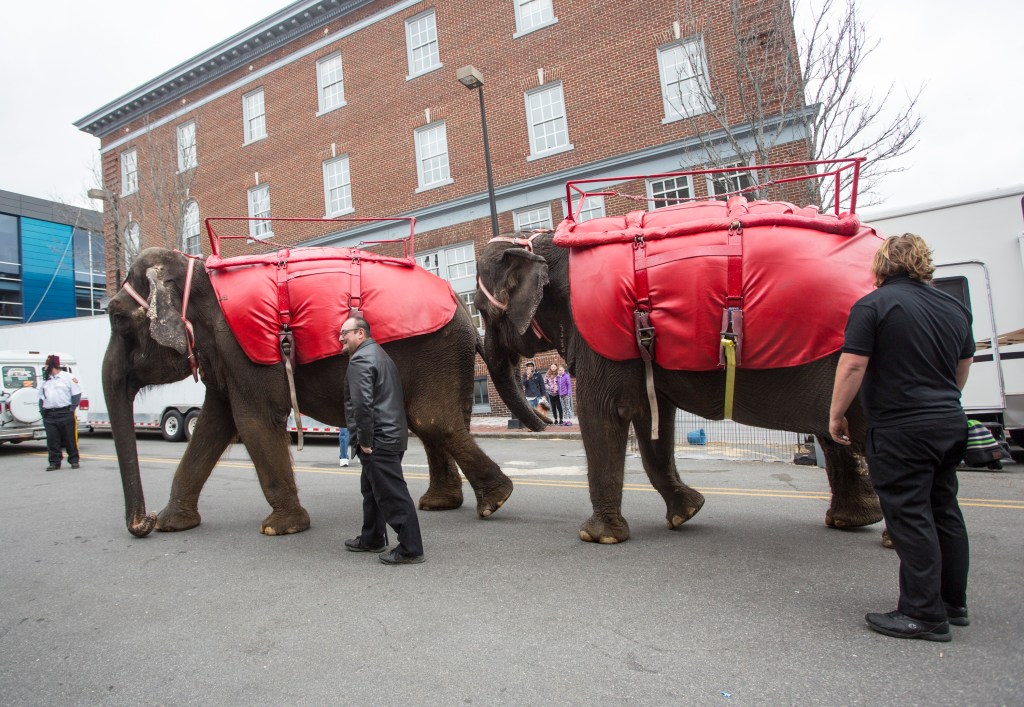
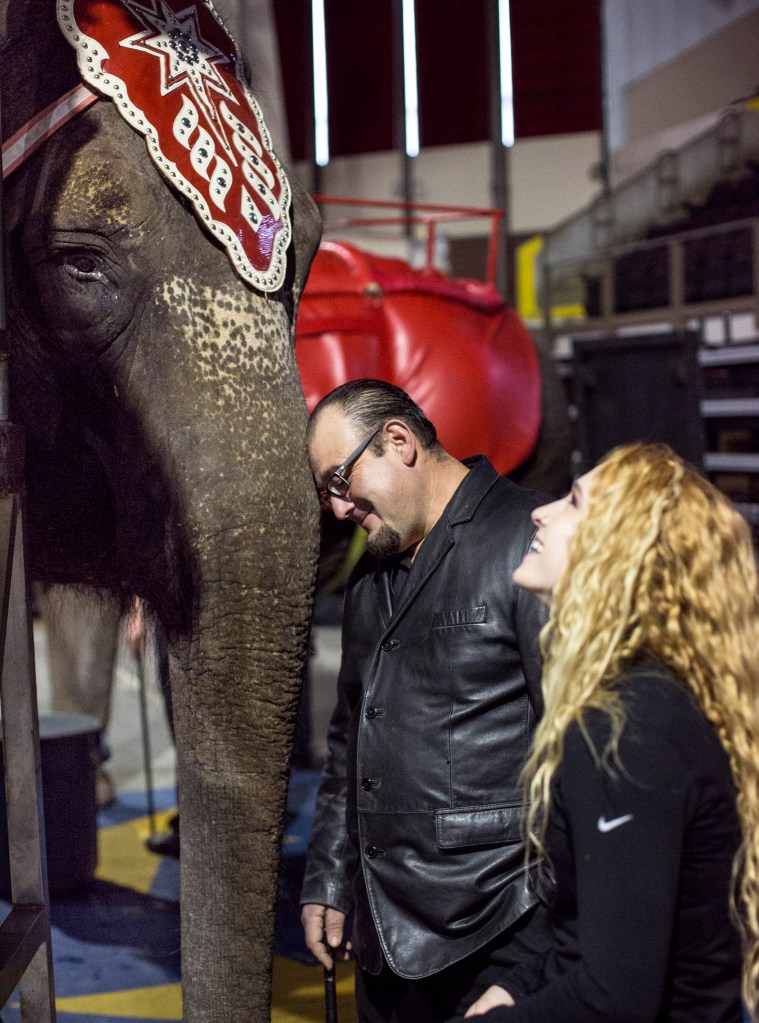
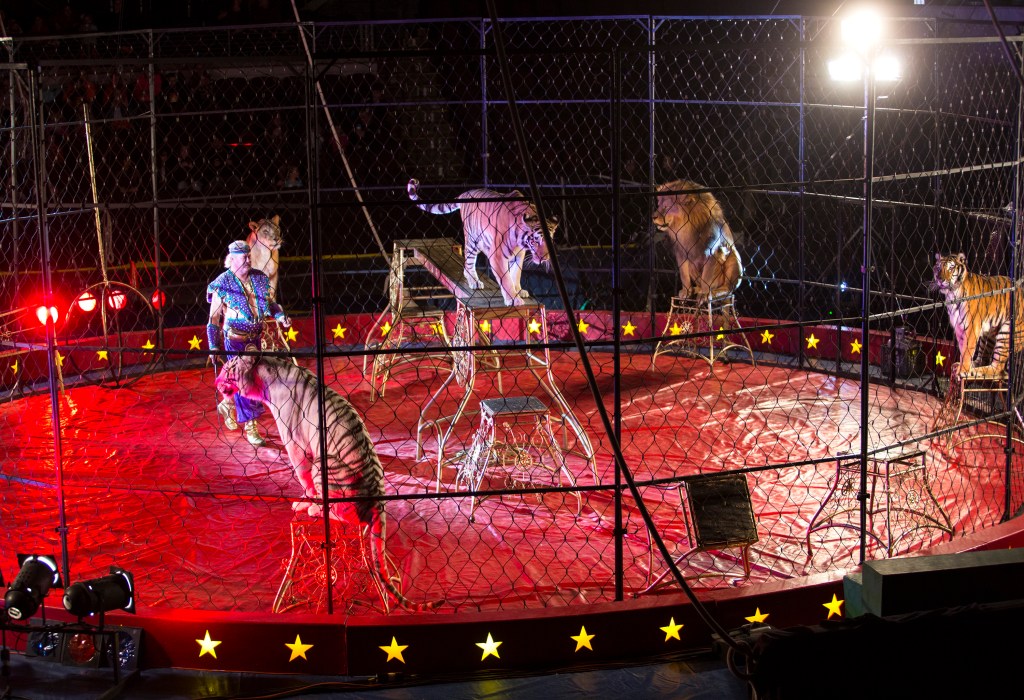

Comments are no longer available on this story